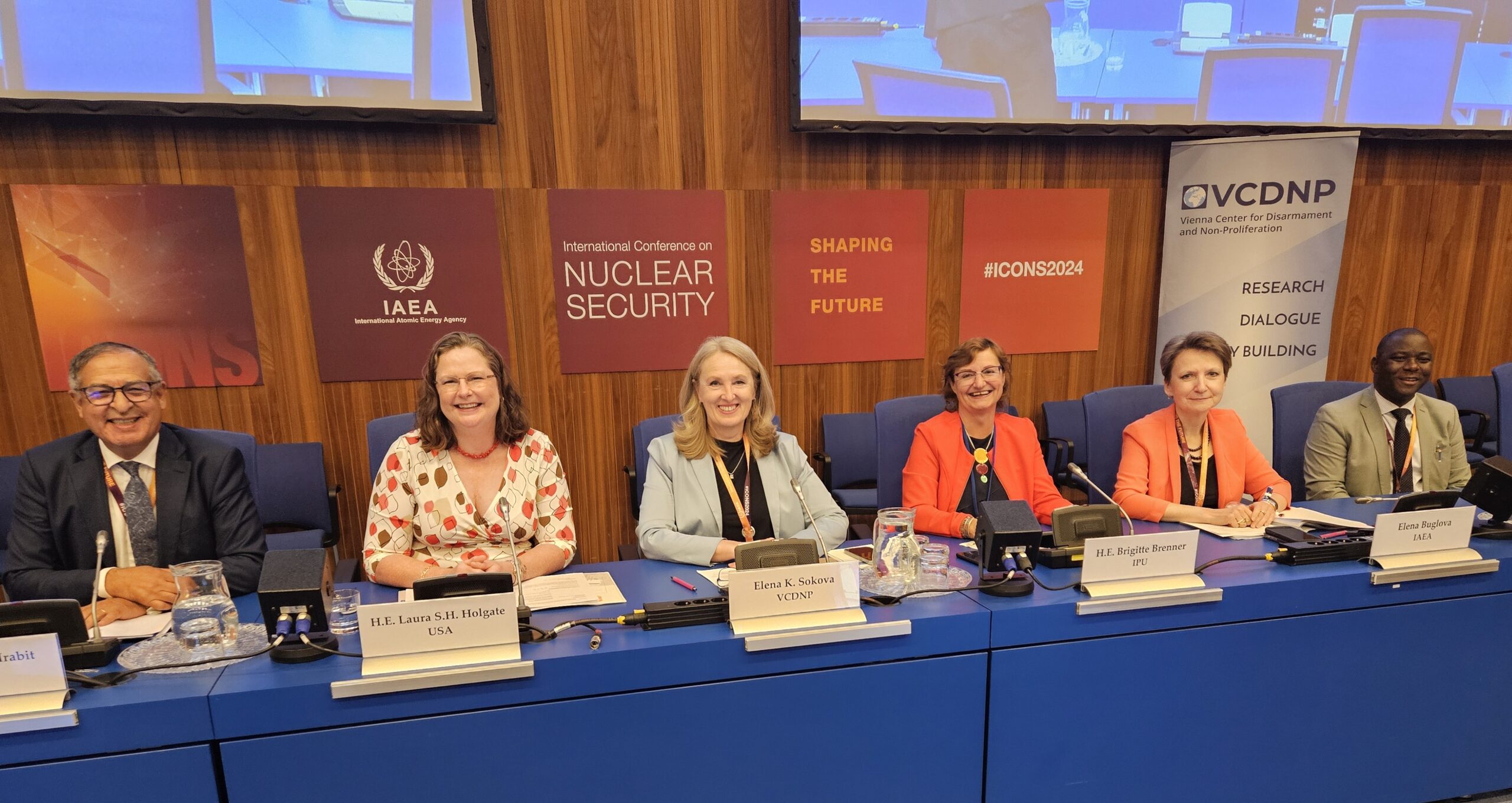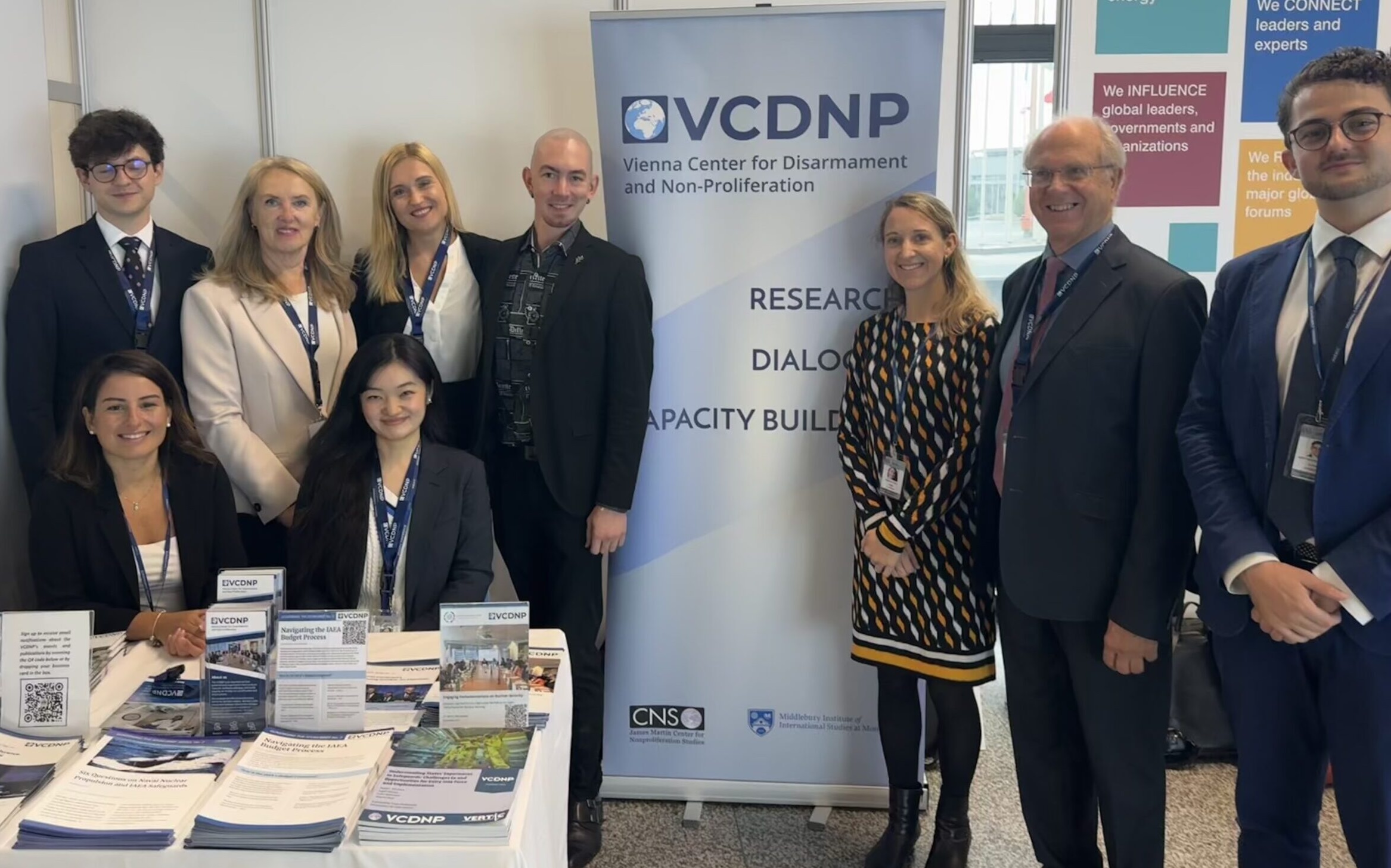
The International Atomic Energy Agency (IAEA) held its annual General Conference (GC) from 16 to 20 September 2024. A VCDNP delegation actively participated in the conference and VCDNP experts spoke at two side events.

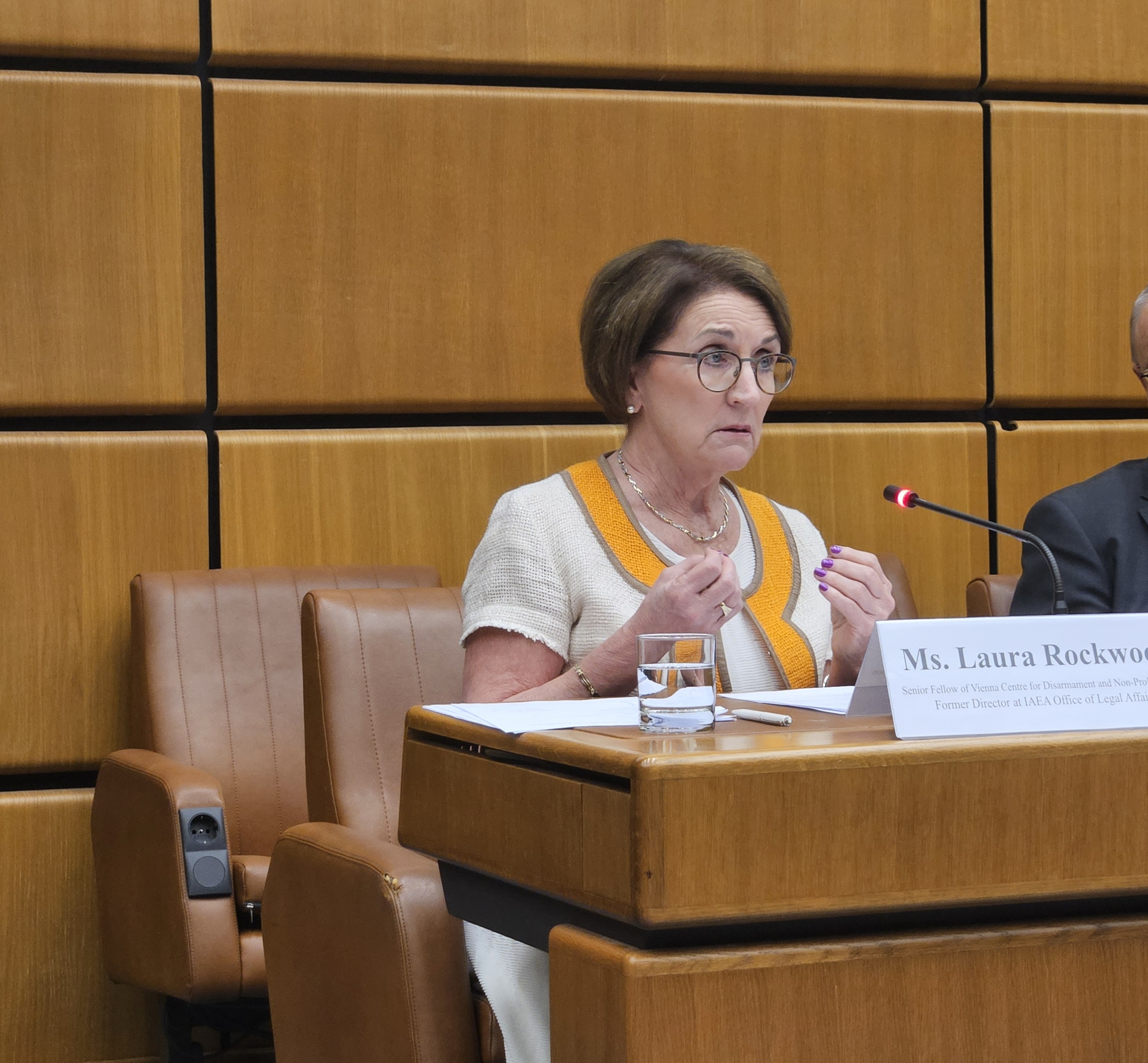
Non-Resident Senior Fellow Laura Rockwood shared her expertise in a side event seeking to raise awareness about the amendment of Article VI of the IAEA’s Statute. This amendment would increase the Board of Governors’ membership and ensure that all IAEA Member States are assigned to regional groups. The amendment was initially put forward to ensure that Member States are more equitably represented in all executive organs of the IAEA.
Ms. Rockwood explained that the Board consists of two categories of members: those elected by the General Conference for two-year periods and members designated for one year by the outgoing Board. A Member State elected by the GC cannot immediately be re-elected, but can serve as a designated member.
For the amendment to enter into force, the GC must first approve it by a two-thirds majority of delegations present and voting (which it did in 1999), and a two-thirds majority of IAEA Member States must accept the amendment based on their respective constitutional processes. Today, this would amount to 119 of the 178 Member States. Currently, 65 Member States have accepted the amendment.
However, as part of an agreed compromise, the amendment to enlarge the Board will not come into force until a list of all Member States, in which each has been included in one of the areas identified in Article VI.A.1, has been approved in the Board and the GC by 90% of Member States present and voting in both, and consensus has been achieved within the area(s) affected.
The negotiations that produced the agreed compromise tackled a number of challenging issues. First, the extent of the increase in the Board’s membership had to be decided, balancing equity with potential impacts on the Board’s efficiency. Eventually, an expansion of eight members was agreed. Second, negotiators discussed whether to formalise the long-standing but unofficial practices related to the rotation of members, which they decided against. Finally, they needed to decide on the timing of the entry into force of the amendment and the approval of the list of area groups. In the end, it was decided that the two actions should be achieved simultaneously rather than successively.
The number of Member States has increased from 110 to 178 since the last amendment to Article VI, putting the two-thirds majority required for its entry into force further out of reach. Although the number of Member States without a regional grouping has increased by 11 since the negotiation of the amendment, most of these States have not yet accepted the amendment.
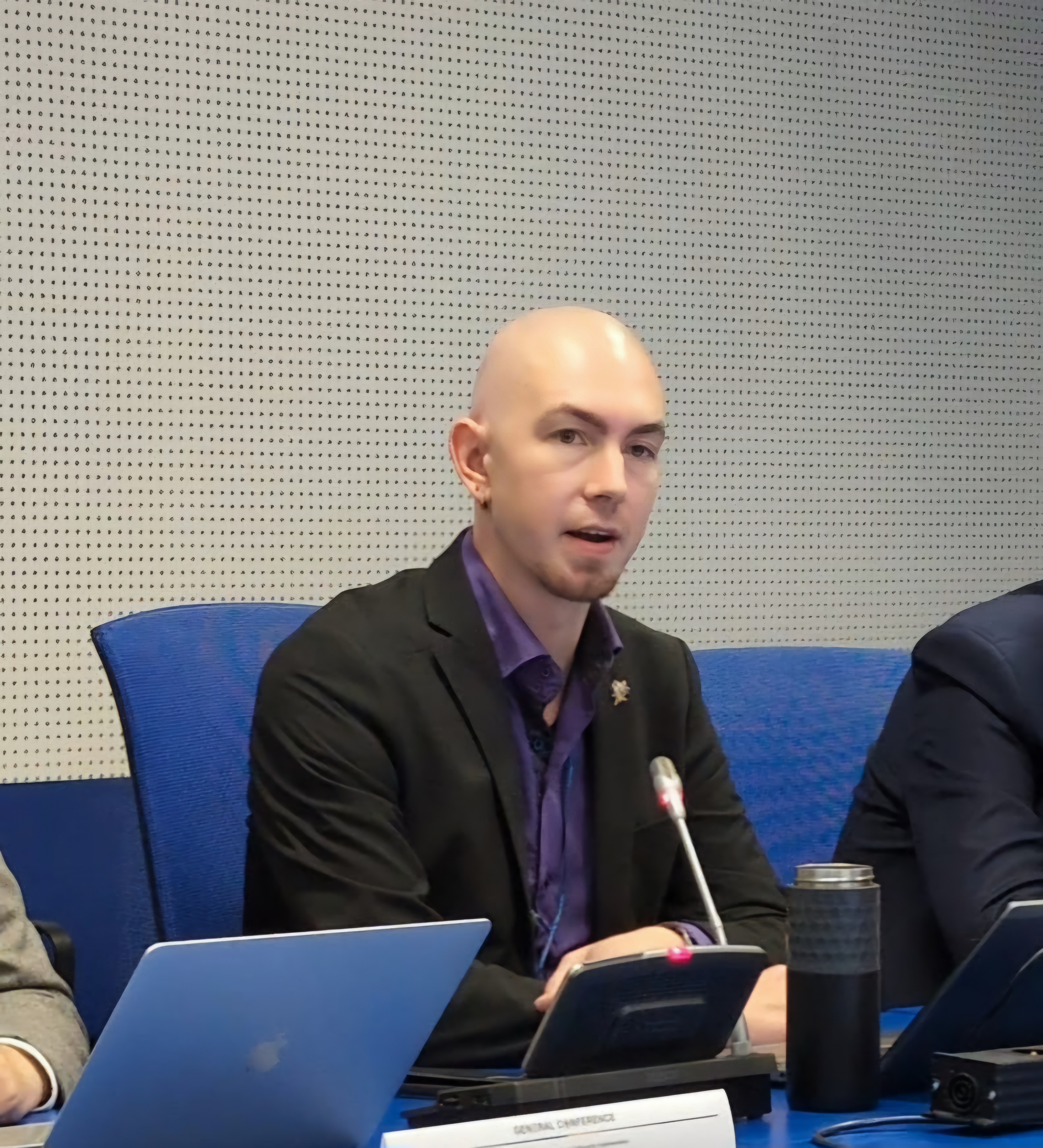
Senior Research Associate Noah Mayhew participated in a side event addressing the challenges of safeguarding nuclear material and facilities in crisis situations. The event sought to draw from previous experiences and interdisciplinary research to identify vulnerabilities of safeguards in specific scenarios and propose areas for strengthening safeguards effectiveness and resilience.
Mr. Mayhew explained that this topic was timely due to the war against Ukraine and the challenges to safeguards that it brings. He noted that such crises contain important lessons for the IAEA, and that the safeguards system must be allowed to adapt to the particularities of each case. Crises can affect safeguards implementation in different ways. The further development of robust infrastructure and technologies to mitigate these challenges is needed, for example through broader investment in remote monitoring systems and extrabudgetary funding to be used at the IAEA’s discretion.
The IAEA Director General has an important role to play, in particular in preserving both the perception and the reality of the neutral mandate of the IAEA in safeguards implementation during a crisis. The cooperation of States affected by a crisis is crucial for the success of any actions the IAEA takes to fulfil its mandate in safeguards, as well as to conduct safety and security activities. In this respect, Mr. Mayhew emphasised that the IAEA Secretariat and its Member States must have a shared understanding that safeguards are a mutual obligation of paramount importance.
In addition, efforts must be made to strengthen international norms against attacks on nuclear facilities, which — at best — can interrupt continuity of knowledge in nuclear facilities and — at worst — lead to nuclear disaster. Mr. Mayhew stated that the eventual establishment of a Convention on the Prevention of Attacks on Nuclear Facilities could play a valuable role in this context. While the current political situation poses an obstacle to such a Convention, Mr. Mayhew concluded by reiterating the common interest of the IAEA and its Member States in the effective implementation of safeguards.
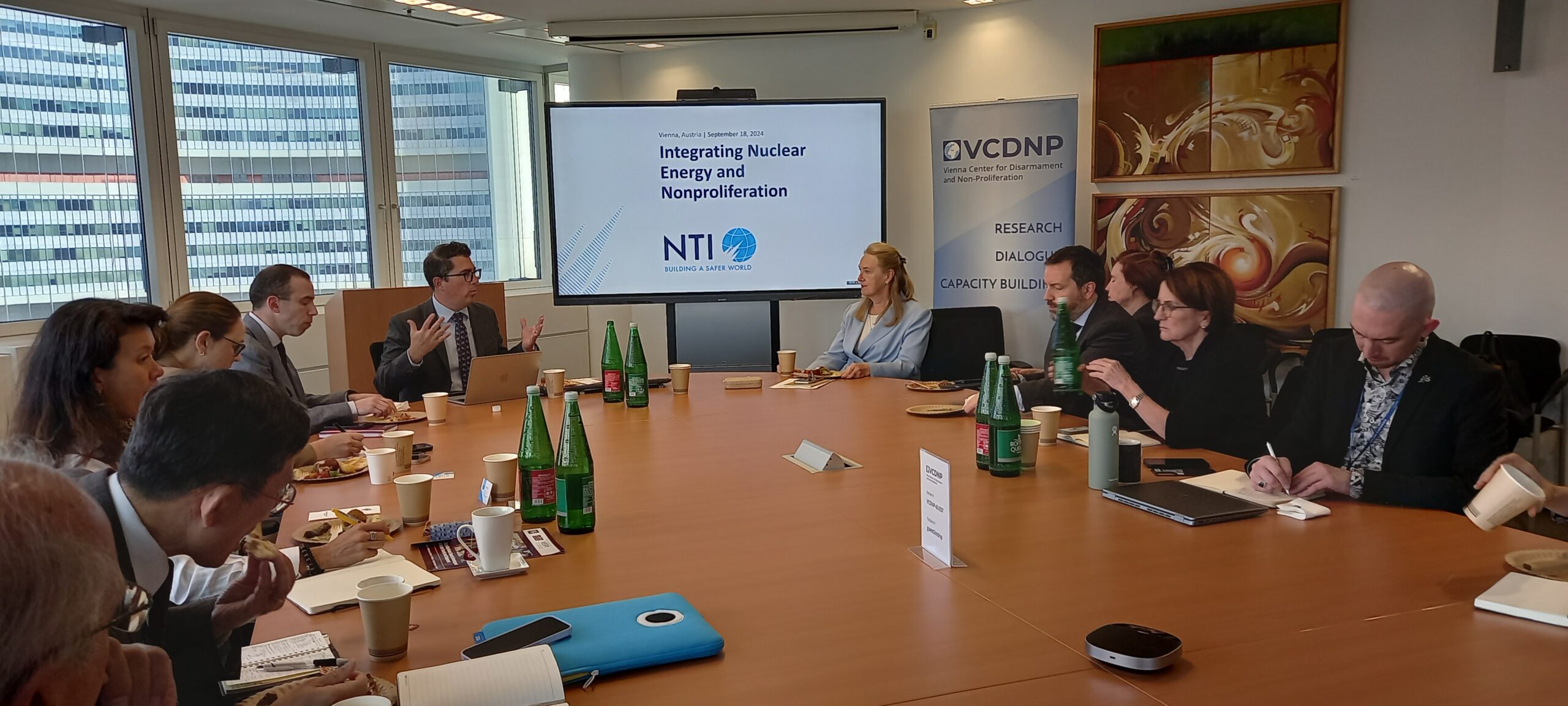
During the GC, the VCDNP organised a seminar with the Nuclear Threat Initiative (NTI) to discuss the nexus between non-proliferation and nuclear energy expansion. In the context of growing global interest in nuclear energy, this discussion touched on potential courses of action to be taken by interested States and the IAEA to ensure that nuclear safety, security, and the proper application of safeguards are maintained in novel nuclear facilities. The seminar also considered which of these factors might guide countries in their choice of technologies.
